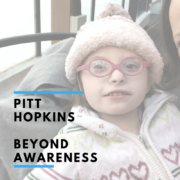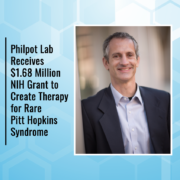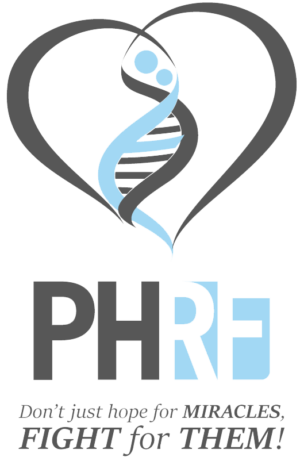Univ. of California-San Francisco opens Pitt Hopkins Clinic
UCSF Pediatric Clinic Focused on Rare Pitt Hopkins Syndrome is Third of its Kind in the World
By Juliana Bunim on September 02, 2015
UCSF Benioff Children’s Hospital San Francisco has opened the third Pitt Hopkins Syndrome (PTHS) clinic in the world, giving patients with this rare genetic condition access to an interdisciplinary team of specialists, including neurologists, clinical geneticists, gastroenterologists and pulmonologists, and establishing a new platform-for advancing research on the disease.
The clinic, which will be conducted in collaboration with the Pitt Hopkins Research Foundation, exemplifies UCSF Medical Center’s mission of treating patients, working to identify new therapeutic approaches as they emerge, and conducting clinical research using patients’ genetic information to advance the field.
The clinic will be led by Elliott Sherr, MD, PhD, professor of pediatrics and neurology at UC San Francisco.
PTHS affects a specific gene in chromosome 18, and is associated with developmental delays, breathing problems, recurrent seizures and distinctive facial features. Children with PTHS often present a happy, excitable demeanor, with frequent smiling, laughter, and hand-flapping movements. However, they can also experience anxiety and behavioral problems, as well as cognitive disabilities.
“Bringing patients together with this rare condition will allow observations to come to the forefront that wouldn’t be able to if we didn’t have the opportunity to treat several dozen children with Pitt Hopkins simultaneously,” said Sherr. “Creating a specialty clinic enables our physicians to recognize the subtle details of this syndrome and develop a comprehensive plan for each patient with a focus on improving quality of life.”
The TCF4 gene that causes Pitt Hopkins Syndrome wasn’t discovered until 2007, when it was found to play an essential role in the development of the nervous system and the brain. Since 2007, genetic testing has become available, allowing doctors to diagnose patients with PTHS whose conditions were previously unexplained, and finally giving some parents answers after searching for a diagnosis for their children for years.
While the number of identified PTHS patients worldwide is approximately 500, experts believe that number is actually higher and many individuals remain undiagnosed.
Children and adults who are suspected of having a genetic syndrome, such as Pitt Hopkins, or a disorder with a genetic component are offered genetic screening at UCSF, including whole exome sequencing, a blood test that looks at more than 20,000 genes. The test focuses on exomes, the protein-coding portions of genes that account for only 1 percent of DNA but nearly 85 percent of the glitches known to cause human diseases.
The Pitt Hopkins clinic offers fully coordinated interdisciplinary care. Additionally, patients and families who elect to participate in research will be able to provide information regarding their conditions that will populate a large database enabling researchers to analyze genetic information and use this information as a starting point for the development of potential therapies. “Because we’re actively conducting research in the lab, as we make discoveries those advances get immediately applied to the patients in the clinics,” said Sherr.
“We are thrilled to have Dr. Sherr and his multidisciplinary team at UCSF leading our third clinic,” said Audrey Davidow, president of the Pitt Hopkins Research Foundation. “The UCSF staff care deeply about helping improve quality of life for individuals with rare disorders and we are extremely grateful that they are teaming up with our other clinics to bring the best level of care possible to individuals with Pitt Hopkins syndrome.”
UCSF is a leading university dedicated to transforming health worldwide through advanced biomedical research, graduate-level education in the life sciences and health professions, and excellence in patient care. Founded in 1864 as a medical college, UCSF now includes top-ranked graduate schools of dentistry, medicine, nursing and pharmacy; a graduate division with world-renowned programs in the biological sciences, a preeminent biomedical research enterprise and top-tier hospitals, UCSF Medical Center and UCSF Benioff Children’s Hospitals.









